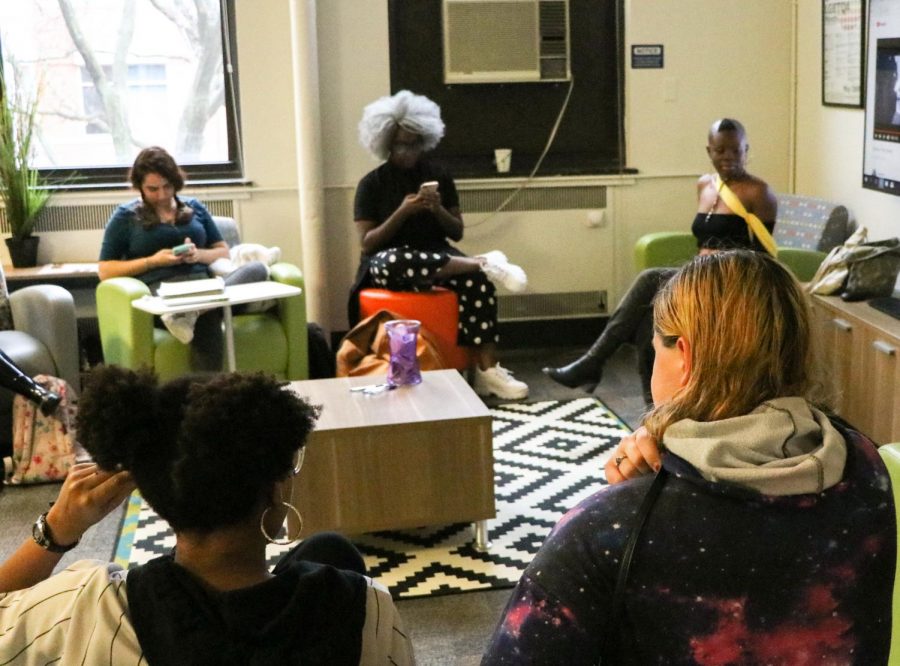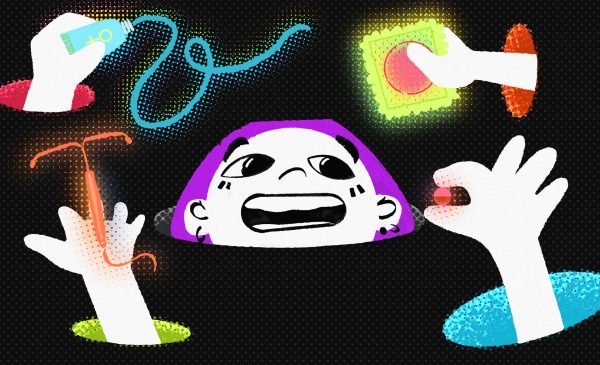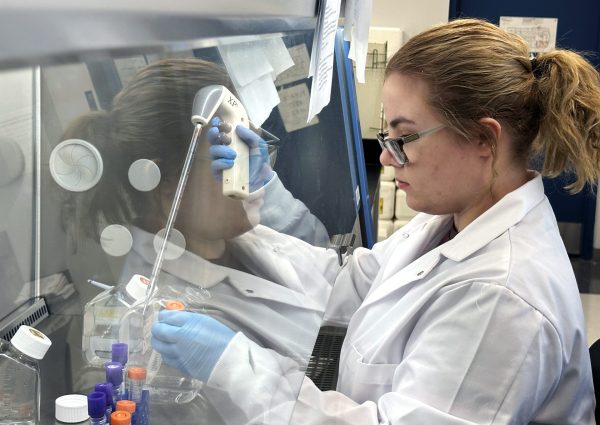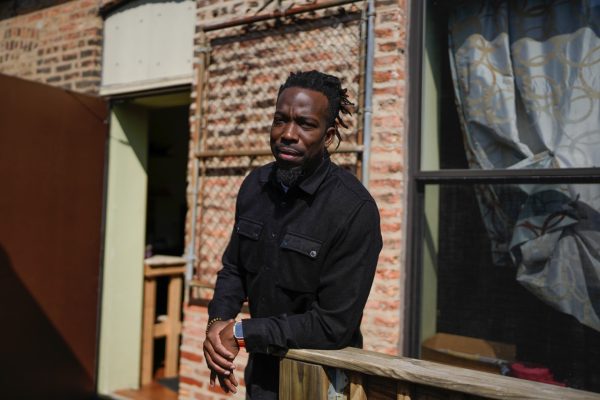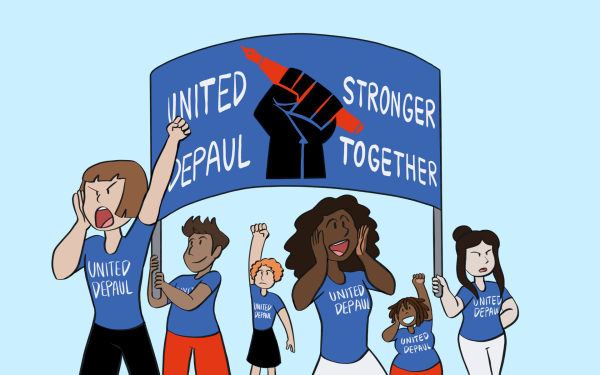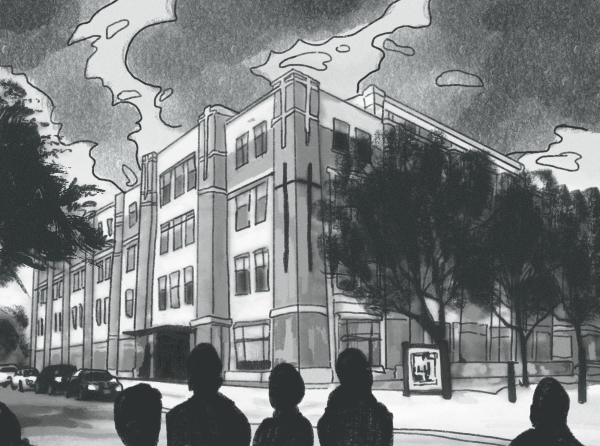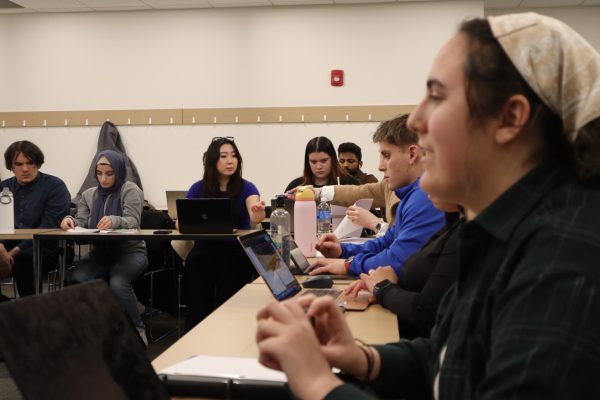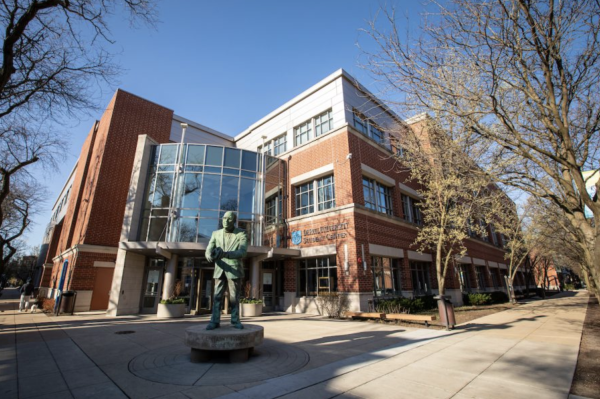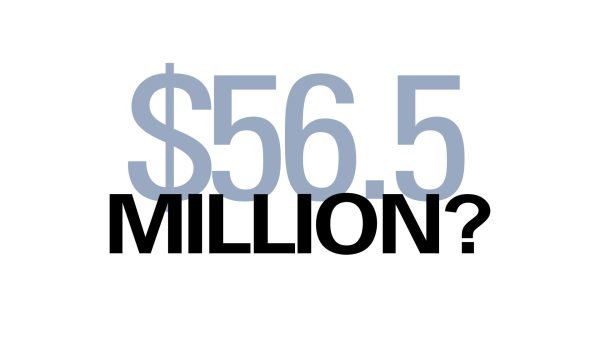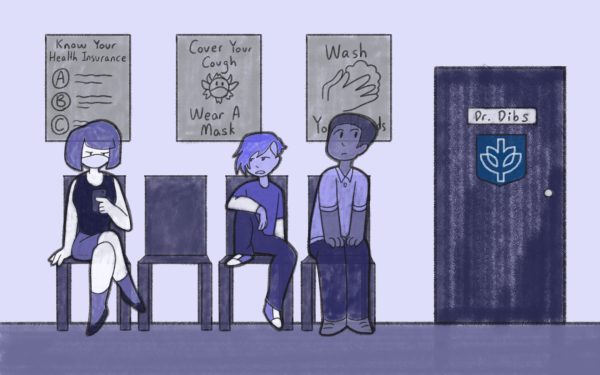DePaul LGBTQIA+ Resource Center opens up discussion for sexual politics
International sex educator Coriama Couture leads a discussion about BDSM, Polyamory, Queerness, Blackness and more on Thursday at the LGBTQIA+ resource center. Mairead Kahn | The DePaulia
It can be intimidating and overwhelming to address the topic of sexuality, especially in a society where sexuality is kept extremely under wraps. DePaul’s LGBTQIA Resource Center was formed last February as a safe space to students who identify as LGBTQIA+. When the Center for Identity, Inclusion and Social Change was disbanded, students were left without a support system.
“The LGBTQIA+ resource center is invested in supporting all initiatives, education and beyond, for those who hold marginalized genders and sexualities,”LGBTQIA+ Resource Center Coordinator Michael Riley said.
The center invited Coriama from Sex Kiki to come host an open discussion (or kiki) on April 3 and 4 to “spill tea” on sexuality, gender and sexual oppression that comes with racism, homophobia and transphobia.
Sex Kiki, according to their website, is a, “sex-positive multimedia sanctuary activating erotic arts and culture.” They produce creative pieces and hold dialogues such as the event at the resource center on the taboo topics that come with sexuality. Projects include forums, podcasts, bulletins, a web series, eoritc film platforms and sex positive workshops. Coriama had previously hosted Sex Kikis at other schools, and is considering going on a college tour.
“I don’t necessarily consider myself a sex educator,” Coriama said. “I do consider myself a facilitator of sex knowledge. What that means to me is that… it just kind of found me. I went to Roosevelt University… studying international studies with a focus on race, rights, gender and activism. So it’s in alignment. I also used to work at Planned Parenthood. There’s different things I had in my youth that brought me here.”
The event itself was meant to be a therapeutic experience where a diverse group of students could openly discuss their sexuality and what it meant to be sex positive, all over tea and donuts.
“The experience of being sex positive is just allowing yourself to fully feel, allowing yourself to fully be and knowing that in your own exploration you will free yourself,” Coriama said. Coriama claimed that sex positivity comes once you begin to “decolonize sex,” which means to undo the systems within our minds that were formed by society. This includes race, gender and sexuality. Approaching sexuality in a non-conformist way can be daunting, especially since there are generally so few resources on college campuses for LGBTQIA+ students. DePaul was the first Catholic institution to even have an LGBTQIA+ center, yet students on DePaul’s campus still feel marginalized.
“No school anywhere is doing enough,” offered a student, who chose to remain anonymous for privacy reasons. “I think there’s more that needs to be improved. If they’re not listening to students, they won’t ever know.”
Bringing guests like Coriama to campus are a step in the right direction for self-acceptance and confidence in DePaul’s student body.
“Coriama has a way of talking about things that I think are often really hard to talk about—around sexuality, around identity and around pleasure—in a way that these students definitely need,” Riley said. “I was hoping we could create a space were we could just start a conversation that I think is desperately needed to have a holistic way of being.”
The event itself was very thought-provoking and stimulating (no pun intended). Everyone was welcome and encouraged to talk and give their thoughts, but no one was forced to. Topics such as polyamory, eroticism, masturbation, race and religion were all discussed respectfully and freely in an open and inviting manner. Coriama, too, believes that higher education schools should do more to inform students on topics of identity and sexuality.
“It’s not a holistic model,” she said. “It’s very one-dimensional. [Education on genitalia] doesn’t include information about intersex people. It’s very limited.” While society as a whole is slowly getting more accepting, students with marginalized identities still feel isolated and scared to express themselves and their sexuality. Coriama’s main goal with Sex Kiki is to put an end to that fear.
“I just want [DePaul students] to know that it takes time, and it’s OK to explore yourself even though the world tells you that maybe you shouldn’t,” Coriama said. “I just want [them] to be open and to be courageous in their own pursuit of understanding themselves and their bodies.”
The DePaul LGBTQIA+ Center will be hosting similar dialogues in the future, including an event on Intersectionality on April 9 at 6-8 p.m. in the Levan Center, room 100.
For more information on Coriama and her work with Sex Kiki, go to www.sexkiki.net.


